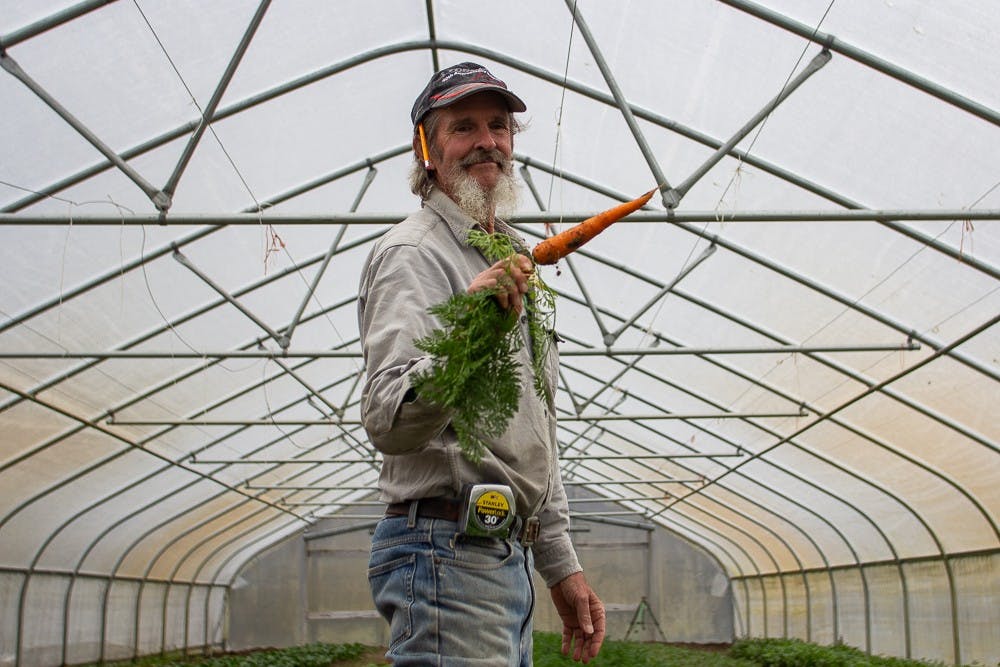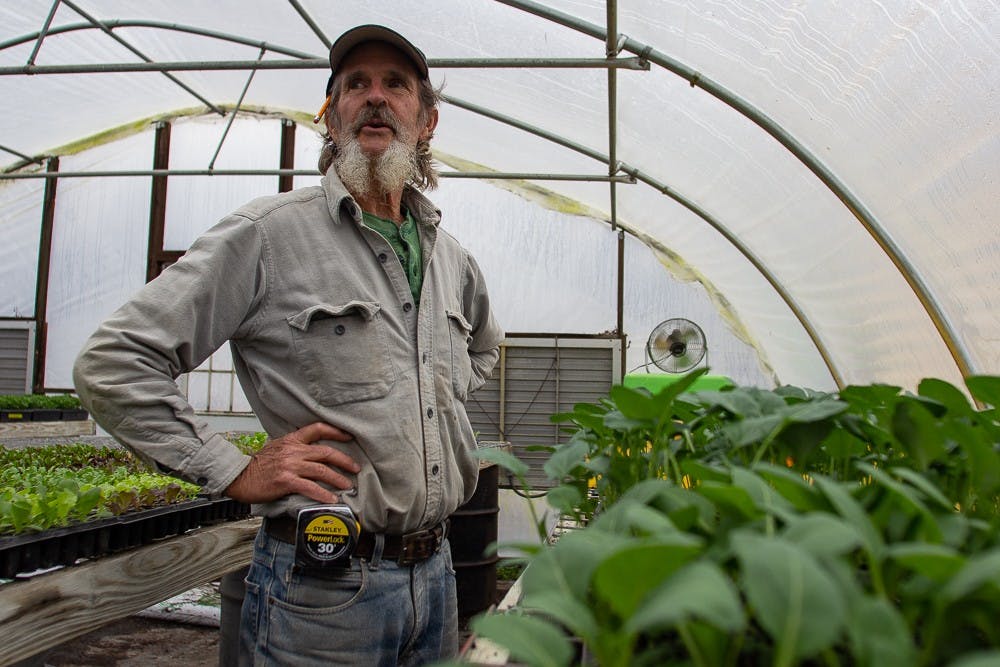For farmers in the Piedmont region of the state, extreme and unpredictable weather patterns are the new reality. Farmers who depend on the climate, like Dawson, are the first to experience the effects of these significant changes.
There is no shortage of anecdotal evidence that climate change has affected the stalls of farmers' markets in Carrboro, Chapel Hill and Durham.
Lisbeth Rasmussen, co-owner of Split Acre Farm in Rougemont, has farmed in the Piedmont for eight years. She and her husband, Joe Tedrow, started Split Acre Farm a little over three years ago. They specialize in growing diversified produce and cut flowers, along with raising chickens.
Recent years have brought more extreme weather, Rasmussen said.
“Even just this calendar year, 2019, just looking at it on paper, we got about the correct amount of rainfall for the average for this area,” Rasmussen said. “But just looking at that number doesn’t tell the whole story. The majority of that rainfall happened within the first three months of the year.”
One of the most significant impacts of climate change is an increase in warmer winters.
Mary Beth Miller, education coordinator for the Carolina Farm Stewardship Association, said warmer winters can bring some short-term positives to farms, such as the ability to bring produce to market during traditionally slow months. But ultimately, she said, North Carolina farmers need colder winters to protect crops and break pest cycles that damage spring harvests.
In order to adjust to the new weather patterns, Split Acre Farm focuses on extending its seasons for growing in order to get the most out of each harvest.
Seasonal farming, Rasmussen said, is becoming a thing of the past.
Winter growing is becoming more prominent as warm spells throw off traditional harvest times. Dawson said he is harvesting spinach in January instead of in March, when he harvested in years past. Rasmussen said because of this year’s winter temperatures, crops are blooming at the wrong time.
Farming year-round requires more than just increased hours tending to crops. Some farms are selecting different crop varieties for the changing climate zones, and many are investing in equipment to protect crops and soil from extreme temperatures and torrential rains. Two expensive farming assets, high tunnels and greenhouses, have proven crucial for minimizing the effects of increasingly unpredictable weather.
Maple Spring Gardens has six unheated greenhouses. Split Acre Farm has invested in making its structures solar passive, meaning they require no additional heating other than that of the sun.
To get the day's news and headlines in your inbox each morning, sign up for our email newsletters.
But the expense is worth it, Dawson and Rasmussen said. Losing crops because of warm spells followed by seasonal freezes can be detrimental to farmers, limiting their profit for an entire season.
“This is both of our full-time jobs, and we have to pay the rent, the bills, keep ourselves afloat and ideally not survive, but make a living and a life out of this,” Rasmussen said.
While Piedmont farmers are finding ways to mitigate the effects of climate change, the threat of disaster always looms.
Hans Paerl, a professor of marine and environmental sciences at UNC, studies some of these disasters. In a recent study published in the academic journal Scientific Reports, Paerl and other researchers evaluated what they called a “recent increase in catastrophic tropical cyclone flooding” in North Carolina. Though the Piedmont is not on the frontlines of these tropical storms, its farmers have still felt the effects.
The study looked at three hurricanes - Hurricane Floyd in 1999, Hurricane Matthew in 2016 and Hurricane Florence in 2018 - all of which were designated as “200-to-500-year flood events,” Paerl said. This means that the flooding of each hurricane was so significant that it should only be expected every 200 to 500 years.
“How can you have three in 200 to 500 year flood events in 20 years?” Paerl said. “It basically confirms that we’re into a much wetter state of things.”
The burden of climate change, both in its cause and effect, often falls on farmers. While Miller admits that farms, especially large, commercial farms, play a central role in the health of the environment, she said farmers are not often given credit for their dedication to protecting the land they work.
“There’s a misconception that farmers don’t care about climate change,” Miller said. "But that's not the case."
Currently, farmers across the country are signing the Farmer Letter on Climate Change Solutions in Agriculture, which demands policy action on climate change. The Carolina Farm Stewardship Associationis helping gather signatures in North Carolina and South Carolina.
“People are paying attention, and working to make a difference,” Rasmussen said.
@maringwolf
special.projects@dailytarheel.com





